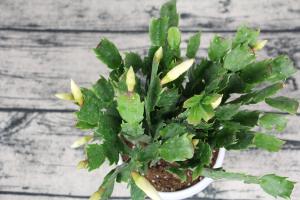When Can I Plant Tomatoes in New Jersey?
Tomatoes are a popular vegetable to grow in New Jersey. They are easy to cultivate and produce a bountiful harvest for a long period of time. But, before you start planting, it’s important to know when it’s the right time to start. So, when can you plant tomatoes in New Jersey?
The Best Time to Plant Tomatoes in New Jersey
The best time to plant tomatoes in New Jersey is in late May or early June. This is when the soil has warmed up to the ideal temperature for tomato growth, which is between 60-70°F. Planting earlier than this can result in stunted growth, while planting later in the season can result in tomatoes not ripening before the first fall frost.
What to Consider When Planting Tomatoes in New Jersey
When planting tomatoes in New Jersey, there are several factors to consider. Firstly, the type of tomato you’re planting. There are determinate and indeterminate varieties. Determinate varieties tend to be more compact and produce fruit all at once, while indeterminate varieties grow larger and produce fruit throughout the season. Secondly, the location of your garden or plot. Tomatoes need at least 6 hours of sunlight per day, and well-draining soil. Thirdly, the climate. New Jersey has a humid subtropical climate, with hot summers and cold winters. This means you should choose a tomato variety that can withstand high humidity and heat.
Preparing Your Soil for Planting Tomatoes
Before planting your tomato seedlings, it’s important to prepare your soil. Start by removing any weeds or debris from the area you’ll be planting in. Next, add compost or other organic matter to the soil to help with water retention and drainage. You can also add a starter fertilizer to help with root development.
Caring for Your Tomatoes
Once your tomatoes are planted, it’s important to take care of them to ensure a successful harvest. Water your tomato plants regularly, making sure not to overwater them. Overwatering can lead to root rot and other problems. Fertilize your tomato plants during the growing season to help promote healthy foliage and fruit development. Keep an eye out for pests and diseases, such as tomato hornworms and blossom end rot. Promptly addressing any issues can prevent them from spreading and damaging your entire crop.
In Conclusion
Knowing when to plant tomatoes in New Jersey is crucial for a successful harvest. Late May and early June is the best time to plant, after the soil has warmed up to the ideal temperature. Consider the type of tomato, location, and climate before planting. Prepare your soil before planting and take care of your tomato plants throughout the growing season. With a little effort, you can enjoy delicious, homegrown tomatoes all summer long!

 how many times do yo...
how many times do yo... how many planted tre...
how many planted tre... how many pine trees ...
how many pine trees ... how many pecan trees...
how many pecan trees... how many plants comp...
how many plants comp... how many plants can ...
how many plants can ... how many plants and ...
how many plants and ... how many pepper plan...
how many pepper plan...































